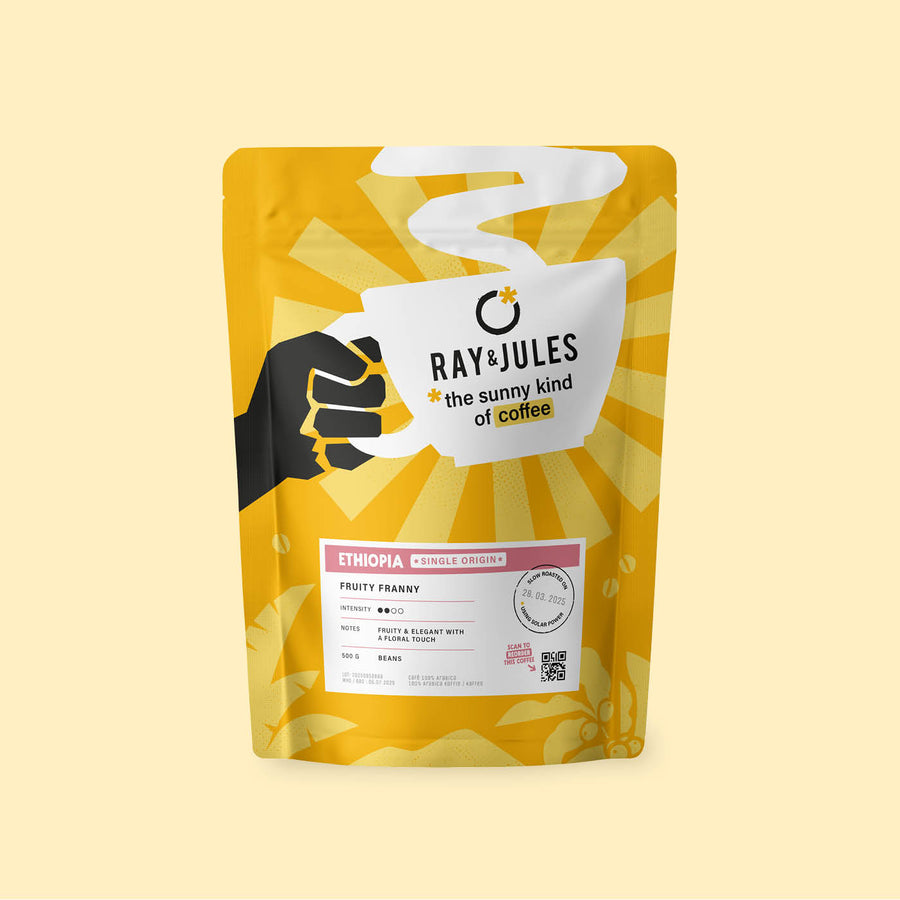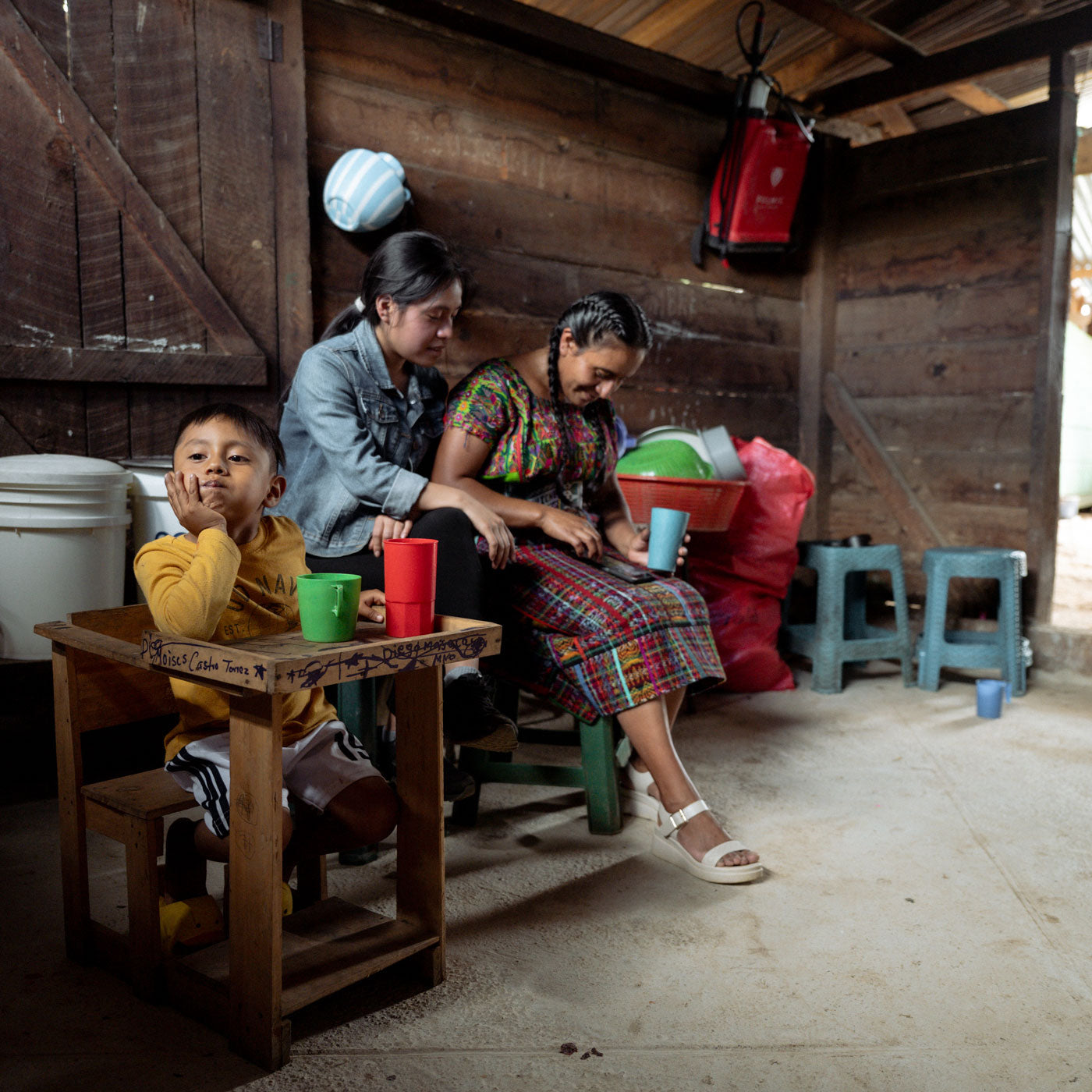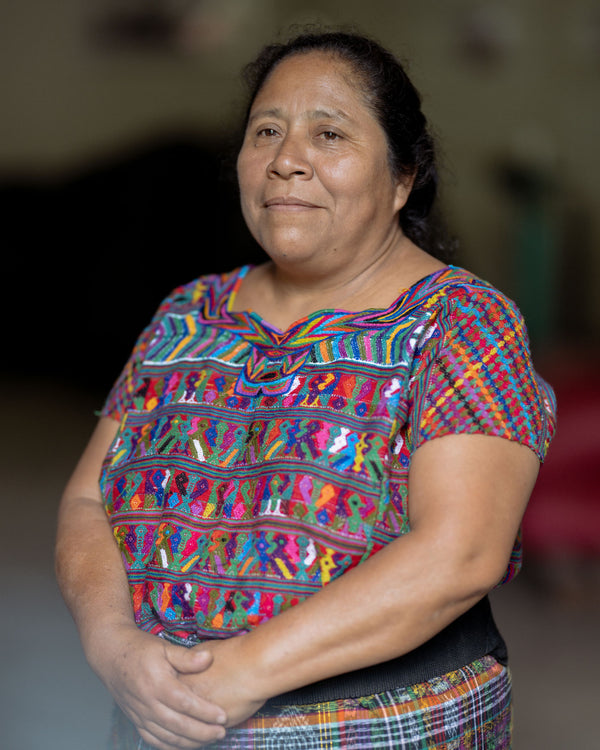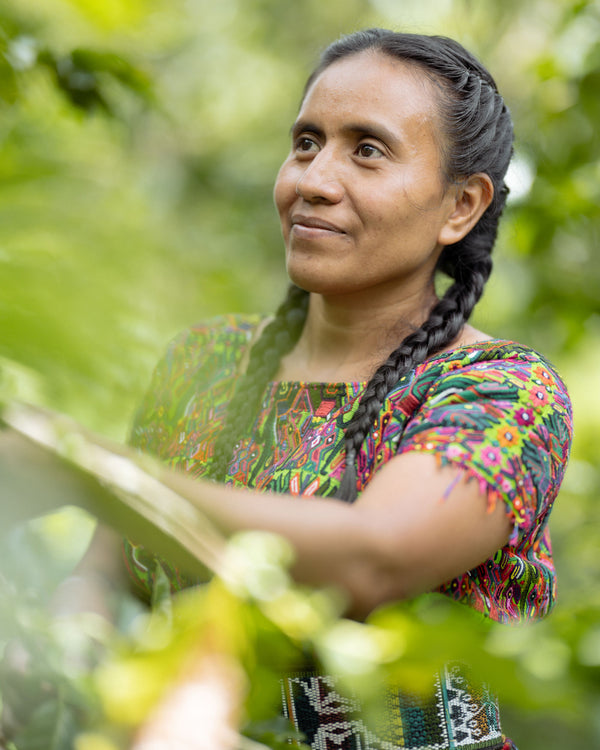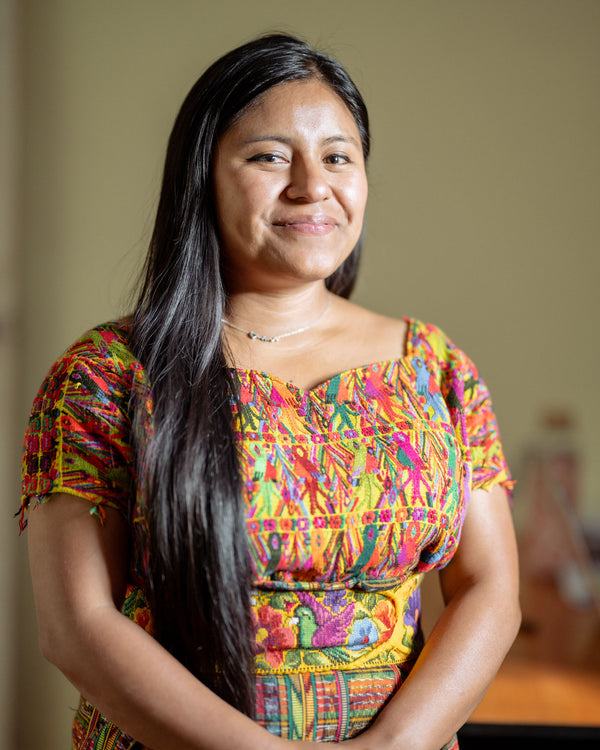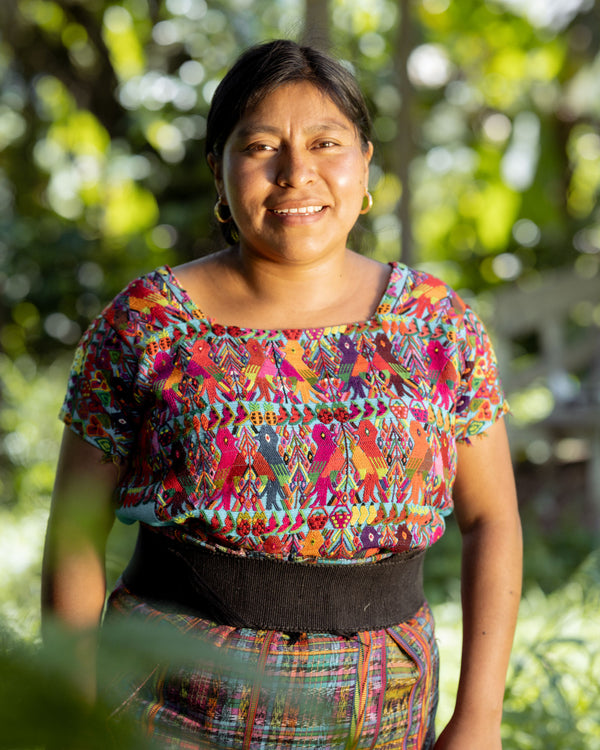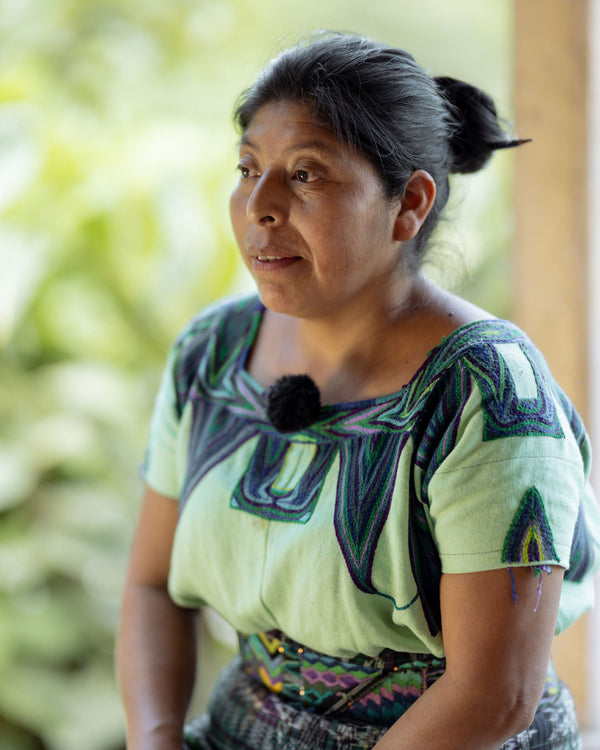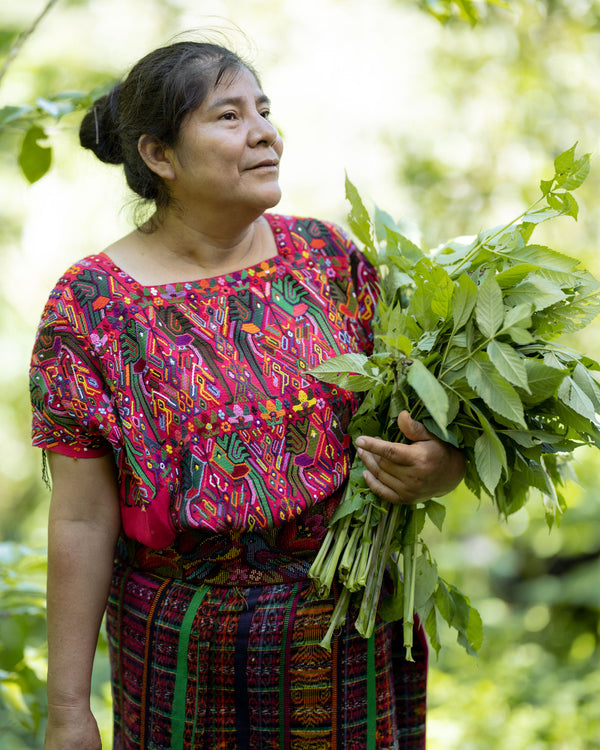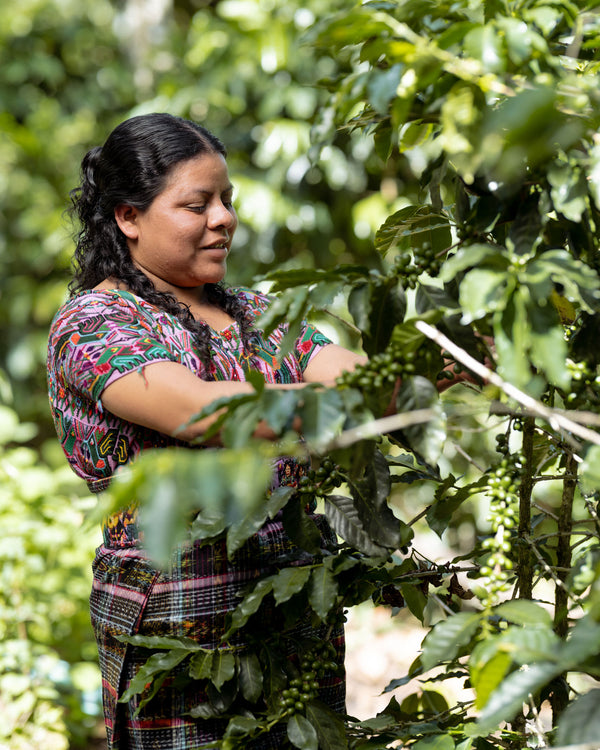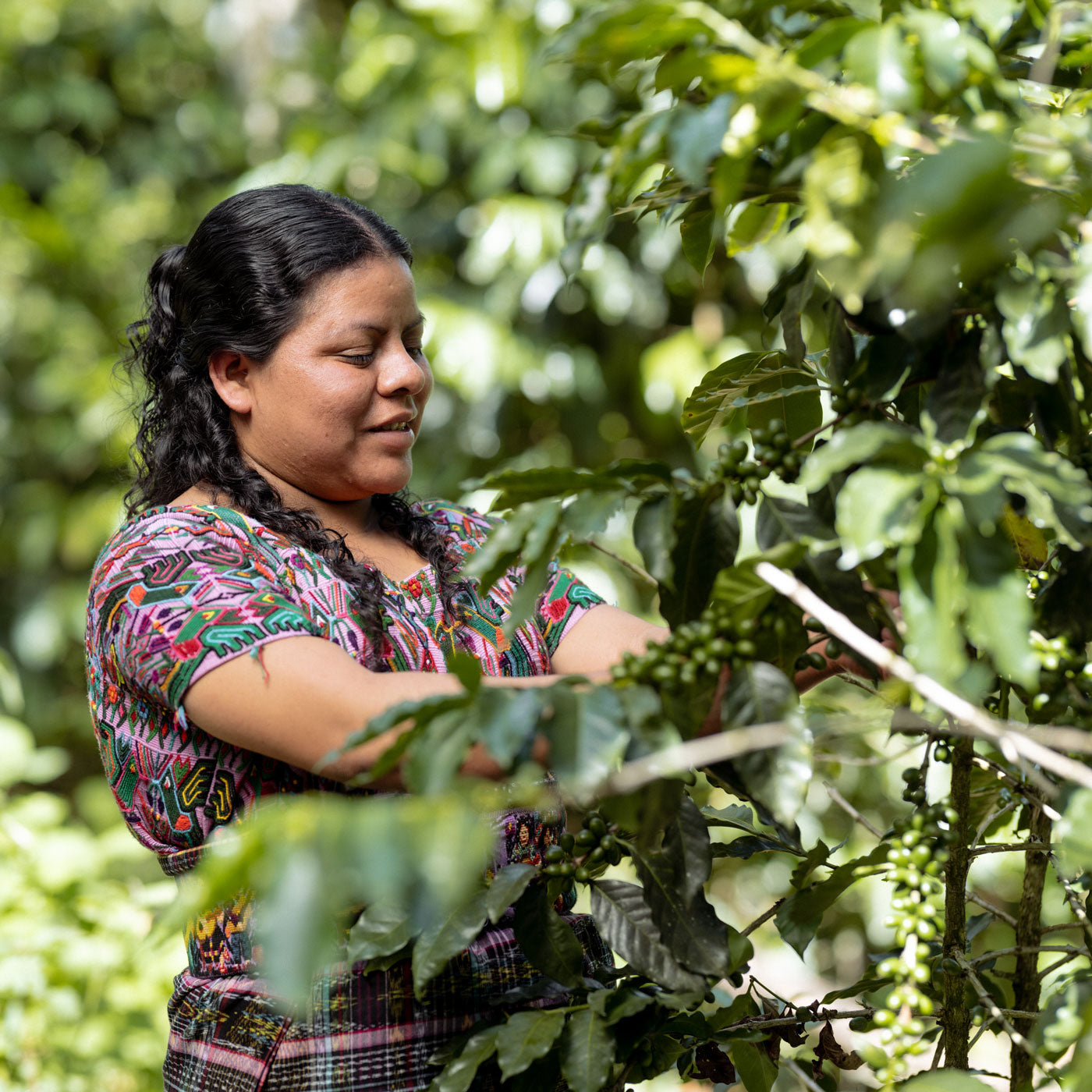
Stronger together: the power of Mujeres Ixil
Five years ago, 45 women decided to join forces. They founded Mujeres Ixil, a collective that is still supported today by the larger Maya Ixil cooperative, a partner of Ray&Jules with whom we have been working for years.
For many of these women, coffee is a lifeline: they grew up among the coffee plants, saw their parents and grandparents toil, and now continue that work themselves. Their days are hard. They combine field work with caring for large families and the household, and some take on an extra job to strengthen their financial position.
More than coffee: learning, growing, and becoming visible
With Mujeres Ixil, the women want to join forces, primarily around coffee, of course. The better the quality of the coffee, the more money they get for it and the stronger their financial position becomes. As a group, they become more visible and hope to gain greater access to the market. They organize training courses, sometimes very technical ones on coffee cultivation, fermentation, or harvesting methods. But just as often, the courses cover topics such as human rights, healthy nutrition, or hygiene.
Nevertheless, the challenges remain considerable. “Only 10 to 15% of our board members are women,” says Miguel Ostuma, director of Maya Ixil. "And that's despite the fact that we actively encourage them to join. The problem often lies with the families: men do not simply allow their wives to take on that role. A common excuse is that women do not own the land." In addition, many women speak mainly Ixil, their mother tongue, and little Spanish. This makes participation in broader cooperative processes particularly difficult.
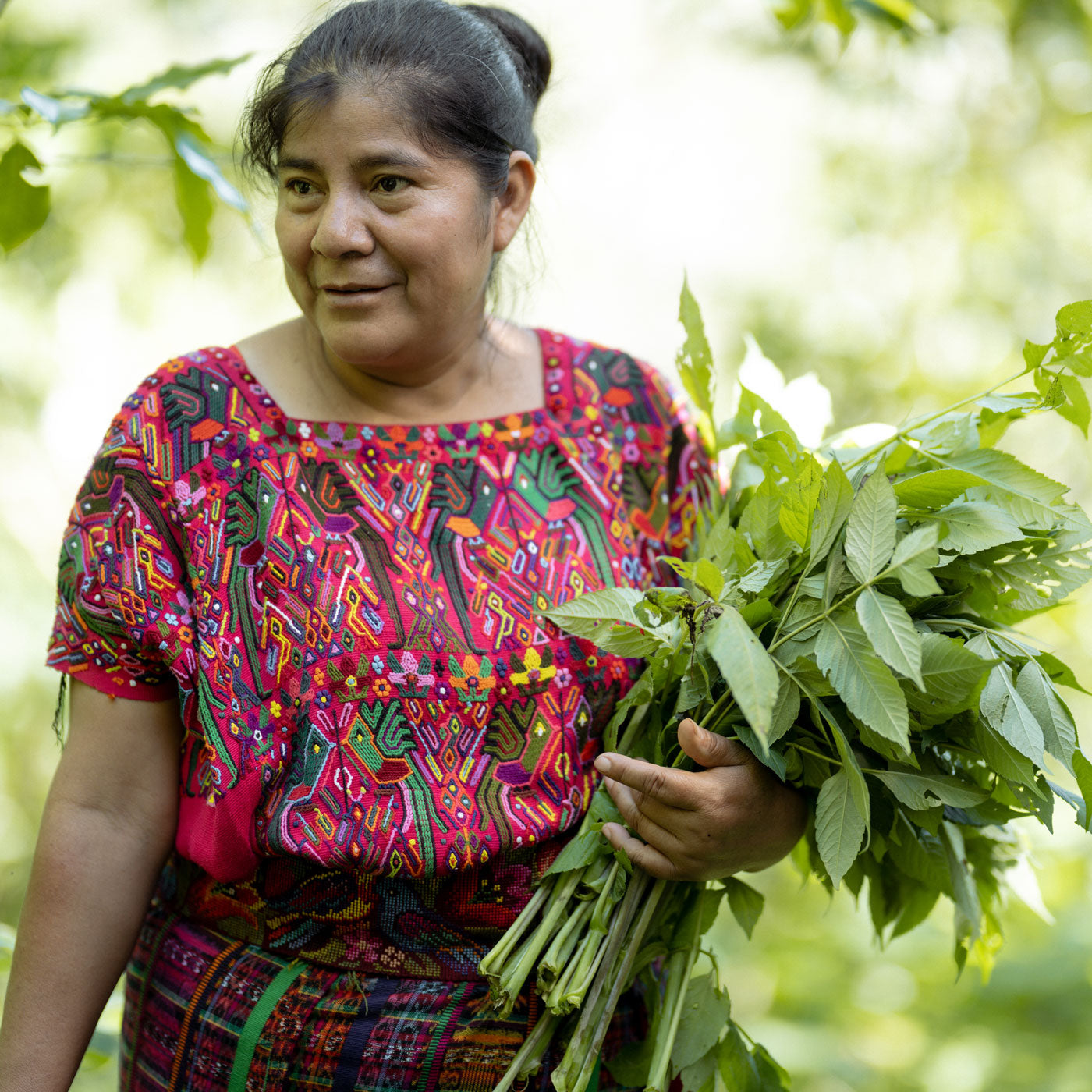
Small steps, big impact
Nevertheless, the women are making progress step by step. They are investing in their children's education and are already seeing clear results. They are also making great strides in nutrition: together, they have developed a program that helps families eat healthier and more varied diets. And they are doing all this alongside their work in coffee cultivation. Their combined annual production amounts to approximately one container, or about 20 tons of coffee beans. To us, that sounds impressive, but on the world market it is a modest amount.
And often the women don't even know where their coffee ends up, let alone who ultimately drinks it. That anonymity—so much work and care without visibility or recognition—is exactly what they want to break through.
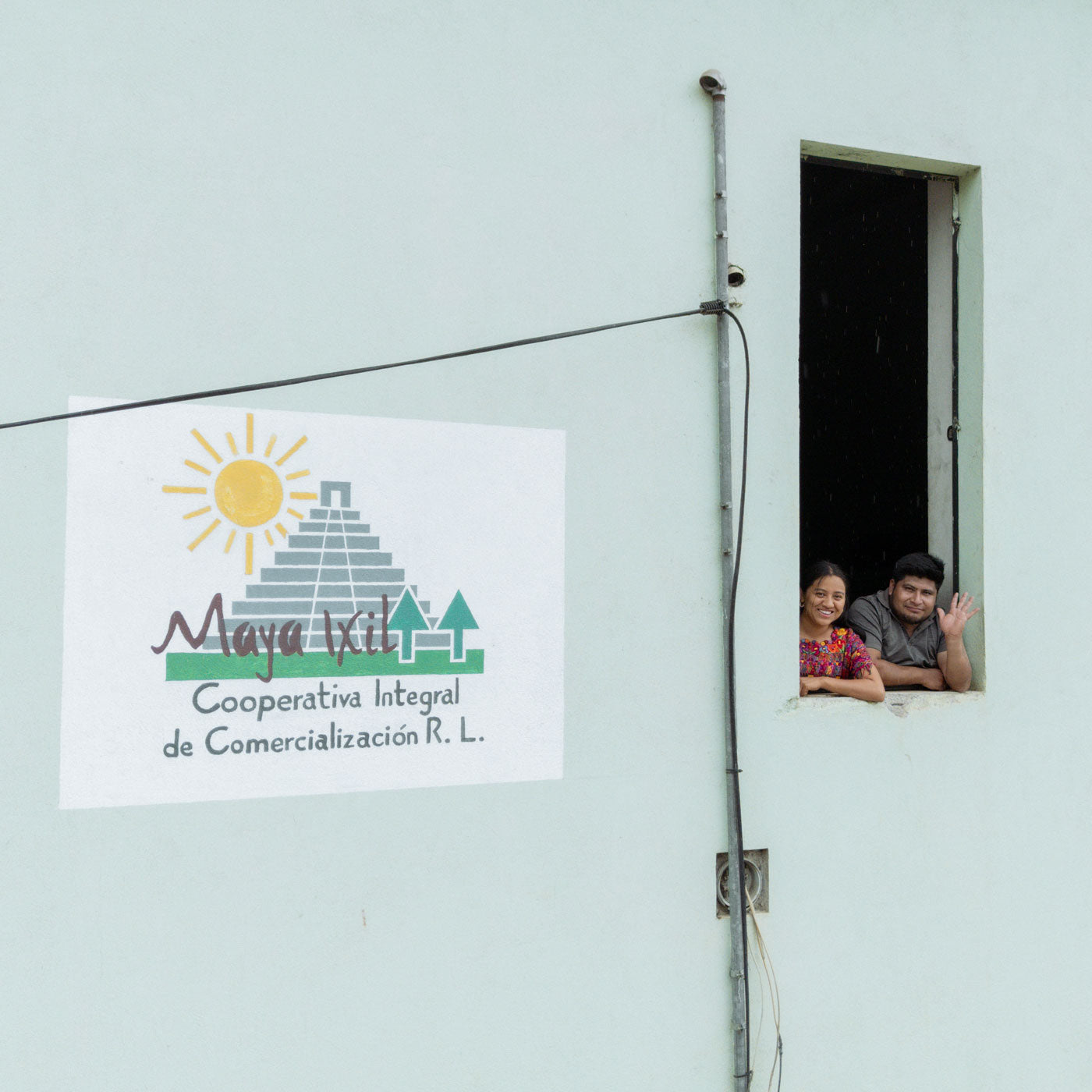
A past we must not forget
The power of Mujeres Ixil becomes even greater when you know their history. The Ixil community suffered greatly during the Guatemalan civil war. Women were particularly targeted: rape, slavery, forced marriages... traumas that continue to have an impact today. Only in recent years have these crimes been officially recognized in court cases.
Against this backdrop, this coffee story takes on a deeper meaning. It is not just about harvesting coffee, but about harvesting hope. Women working together to build a better future, rooted in their land, their culture, and their coffee.
From a local initiative to IWCA
That is why they not only founded Mujeres Ixil, but also joined IWCA Guatemala a few months ago. This gives them a voice and a label that allows them to market their coffee more effectively. Their goals are the same as those of IWCA worldwide: to become visible, gain access to markets, and claim a fairer position in a sector where women are still too often invisible.
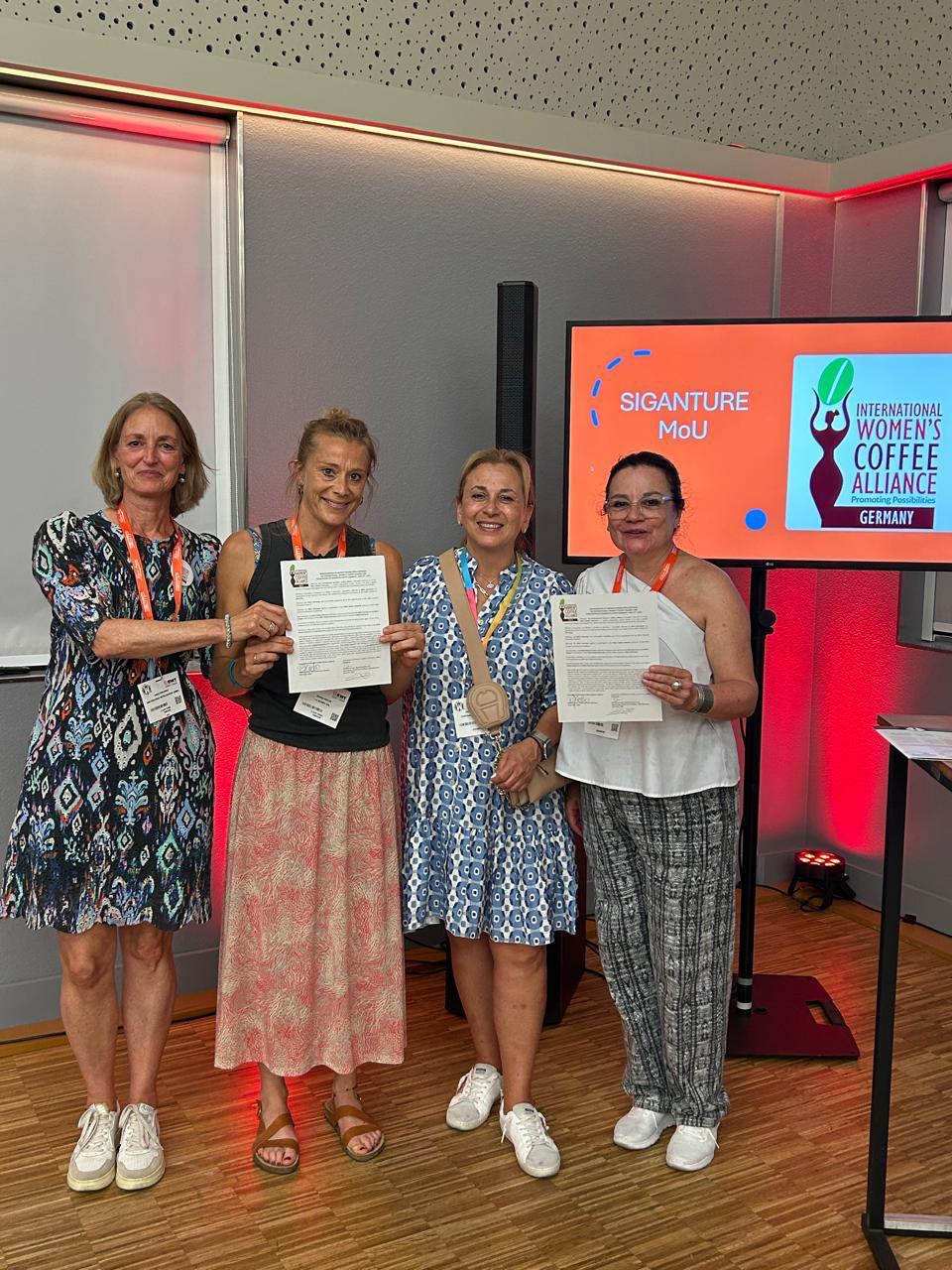
Sarah:
"This feels very close to my heart. I have been following the work of the IWCA (International Women's Coffee Alliance) for some time now, and I recently became a member of the board of IWCA Germany. In this role, I see time and again how valuable it is when women in the coffee chain meet, share their stories, and become stronger together. It not only makes the coffee world more equitable, but also more humane... and yes, perhaps a little gentler.
For that reason, it feels so meaningful that our very first IWCA coffee comes from the Mujeres Ixil. It is coffee with a story that touches me personally, and I hope you will be able to taste it soon."
We welcome your feedback
When we asked Miguel what else we could do for this group, he didn't hesitate:
“Give them feedback. Let the women know who drinks their coffee, how people appreciate their work. That gives them strength and pride.” And with a smile, he added: “And next year: buy again... and more 😊.”
With these last words in mind: make yourself heard! Share your experience, give feedback, and help make these women and their stories visible. That's how we connect people and create real impact together.

